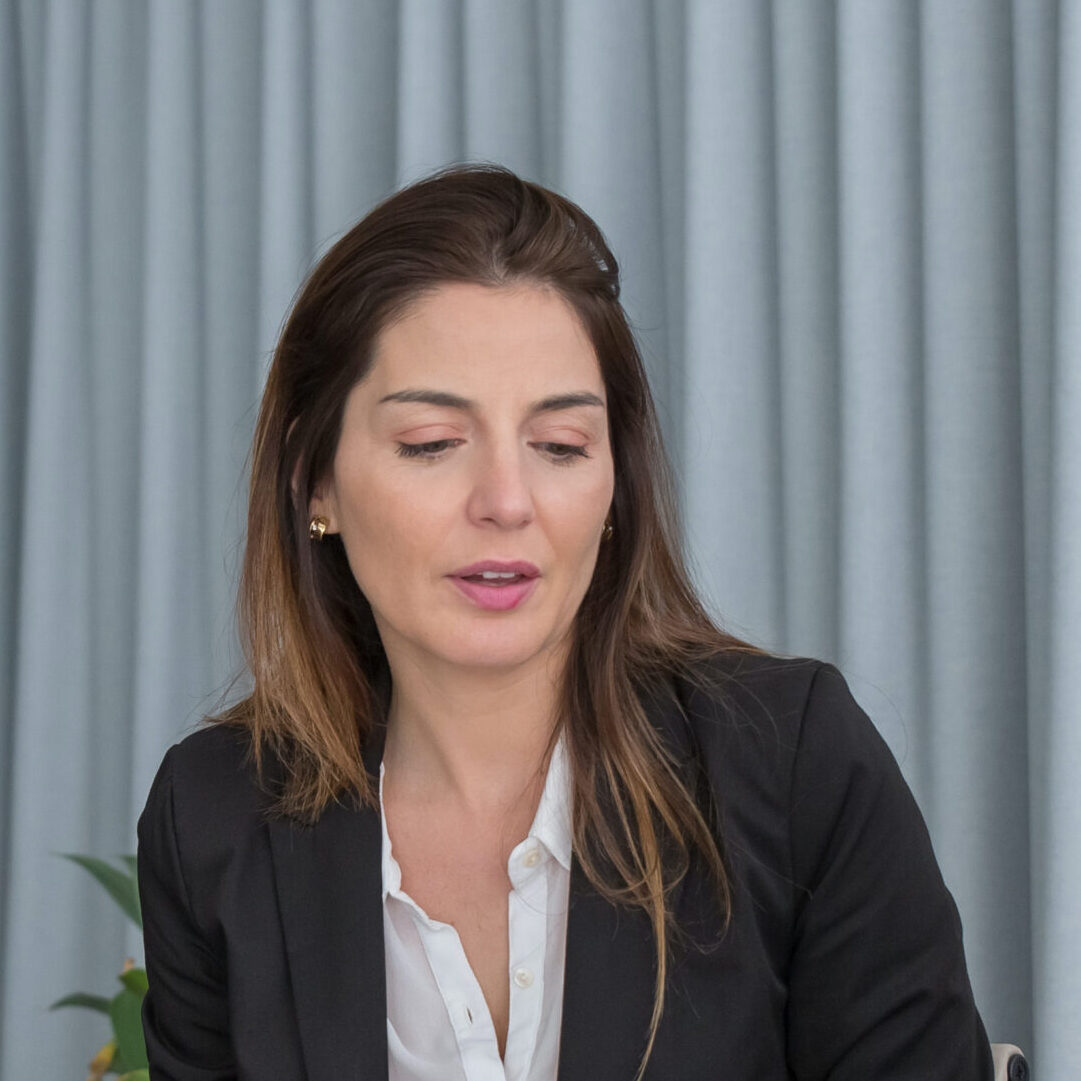2025…
Building a Collaborative Boardroom Team is About More Than Diversity — it’s Also About Intentionality
A supportive environment brings out the best from diverse minds.

By Kristi Honey
Building a culture of collaboration in the boardroom requires an emphasis on creating positive relationships between board members and senior management, alongside fostering an inclusive atmosphere that welcomes diverse opinions and open questions.
At the Colleges and Institutes Canada (CICAN) conference in Halifax, Nova Scotia, I, as Chair of the Board at Durham College, alongside the school’s President Don Lovisa, presented our united approach for intentionally building a culture of collaboration to foster engagement, improve questioning, and active participation at the school. Colleges from across Canada were eager to learn how we were able to create a shift around our boardroom table.
As Chair of the Board, it’s vital to ensure consideration is taken at all steps within an individual’s Board journey, from recruitment and onboarding and orientation to continuous learning, managing the Board agenda, feedback, and evaluation and celebrations.
To facilitate a positive culture at Durham College, we start ahead of recruiting new Governors (Directors). Diversity of thought is critical around any decision-making table, and that starts with building the right skills matrix to ensure the Board has the right experience, sector representative(s), and a focus on team diversity. We learned quickly that planning for diversity wasn’t enough — we also needed to adjust our processes, including where and how we advertised our board vacancy postings, and we modified the interview experience.
In addition to the intentional posting of our advertisements, we ensured our postings were shared with important groups that could share them with their community, for example, Black North Initiative, PFLAG, Women Get On Board, and Mississaugas of Scugog Island First Nation. We engaged a recruiter to assist with diversifying our applicant pool to ensure we met our Board Diversity Imperatives. Interviews are a great time to set expectations and ensure alignment regarding courage in the boardroom, as well as assessing alignment to our values of respect, integrity, collaboration, diversity and inclusion, social responsibility, and excellence. There were a number of times high potential candidates with exceptional skills and experience were not selected due to a misalignment with our core values.
Onboarding a new Board Member is critical to successfully setting the tone of the environment from the beginning. Our orientation sessions were a full-day commitment, involving the Chair, Vice Chair, President, and the entire Senior Leadership team. This day focused on an overview of the sector, associated organizations, key partners and stakeholders, and an overview of key Board matters. Orientation also emphasizes the role of the Board, the segregation of duties between Directors and Senior Management, and provides training on good governance to ensure Directors are staying at the governance level — noses in, hands out.
Incoming Directors are matched with experienced mentors in an unstructured format to ensure new Board members have someone to go to ask questions or seek clarity on any history ahead of Board meetings. Every in-camera Board meeting included a “Director spotlight” session: a chance for one designated Director to share a five to eightminute presentation about themselves. Some take this as an opportunity to be vulnerable with the group, talk about their family, or career. It made a big difference in the team getting to know one another on a personal level. It was also a lot of fun, and generated a lot of laughter, some tears, and built genuine trust amongst the group. In 2021, we implemented a “Meet Your Mentor” event to expedite relationship-building and help support Directors in finding their voice faster around the boardroom table.
Continuous learning is an essential component to ensuring Board members arrive to the table prepared for active discussion. Every year, the Executive Committee planned a series of six “Learn More” sessions. These sessions were presented by staff and included a number of key topic areas for governors to learn more about operations. Sometimes, these included facility tours or hands-on experiences within labs.
Often, our “Learn More” sessions were a deep dive on key topic areas such as cyber security, enterprise risk management, and financial oversight. These are optional sessions for board members to engage with senior leadership and staff, ask questions about the business, and build relationships with staff and one another. Annually, a generative discussion was held to allow Directors to contemplate and discuss key issues in a safe space where there are no bad questions, and there is room for “what if” conversations. The tone is set for deep respect and encouraging diversity of thought.
The Board encourages professional development and supports Good Governance training and certifications. Recognizing and celebrating one another’s accomplishments is also very important. Gifting swag and sending hand-written congratulations or thank you notes from the Board Chair also helped with creating a culture of engagement.
To facilitate active participation around the board table, the agenda matters. Prep calls are held with the President, Board Secretary, Chair, and Vice Chair to guarantee focus is on the most important topics and are in the right place on the agenda, with enough time to facilitate a good discussion. An annual work plan ensures the board will cover all priority areas within the board and committee work, and verifies that we are meeting our legal, policy, and fiduciary duties. The Board creates and agrees to annual goals with targeted aspirations and embeds planning to ensure achievement of the goals into the work plan.
Directors are encouraged to engage each other with respect, even when holding opposing points of view. To facilitate a culture of collaboration, it’s important to also encourage and allow continuous feedback and evaluation. To elicit feedback, Board Evaluation is a valuable tool that can help boards maximize strengths, build on weaknesses, and enhance overall performance.
As a Board Chair, I met with each Director ahead of the start of each new academic year to solicit feedback, offer encouragement, and listen to perspectives, particularly on what’s working and what’s not working. I ask each Director to attend prepared to share a “Stop, Start and Continue” — what should we start doing, stop doing, and continue doing. This keeps the discussion informal and reasonably unstructured while also encouraging dialogue and open and frank conversation. I adapt future Board meetings and our work plan to ensure action from the discussions.
Annually, we conduct a formal evaluation that encourages self-reflection on participation, as well as the role of senior leadership, the President, fellow Board members, and our work. Informal meeting assessments are included at every committee and every board meeting, essentially a round-table to reflect on the meeting and encourage feedback on our performance as a board. A different Director is identified ahead of the meeting to facilitate the discussion. Exit interviews are conducted with outgoing Directors and the Chair.
Creating a culture of collaboration and participation around any table takes thoughtful planning and meaningful and deliberate steps to ensure the team is supported, encouraged, the space is safe and respectful, and the attention and purpose is to build trust and bring out the best and brightest from the diverse minds. This takes a mindful approach from recruitment to exit. Every team member has already earned a seat at the table, without creating the space for them to share their unique perspectives, whatever would we be meeting for otherwise?

Kristi Honey
Kristi Honey is the Chief Administrative Officer for the Township of Uxbridge and a governor on the Trent University Board. She is the former Chairperson of the Durham College Board of Governors and College Employers Council Board. Kristi built and sold several tech start-ups, and is a globally recognized cyber security, risk management, and governance expert. Kristi is a champion for human rights, the environment, and the economic empowerment of women and communities.
2025…
2025 Top 25 Women of Influence+ Luncheon: Media Wall
By…
Women’s Leadership Looks Different — So Why Do We Ignore It?
By…
Meet Nadine Bernard, the Entrepreneur Bridging Indigenous and Corporate Canada, and RBC Canadian Women Entrepreneur Awards Micro-Business Winner
By…
How One New Brunswick Entrepreneur Built on a Family Legacy to Lead in the Automotive Industry
By…
